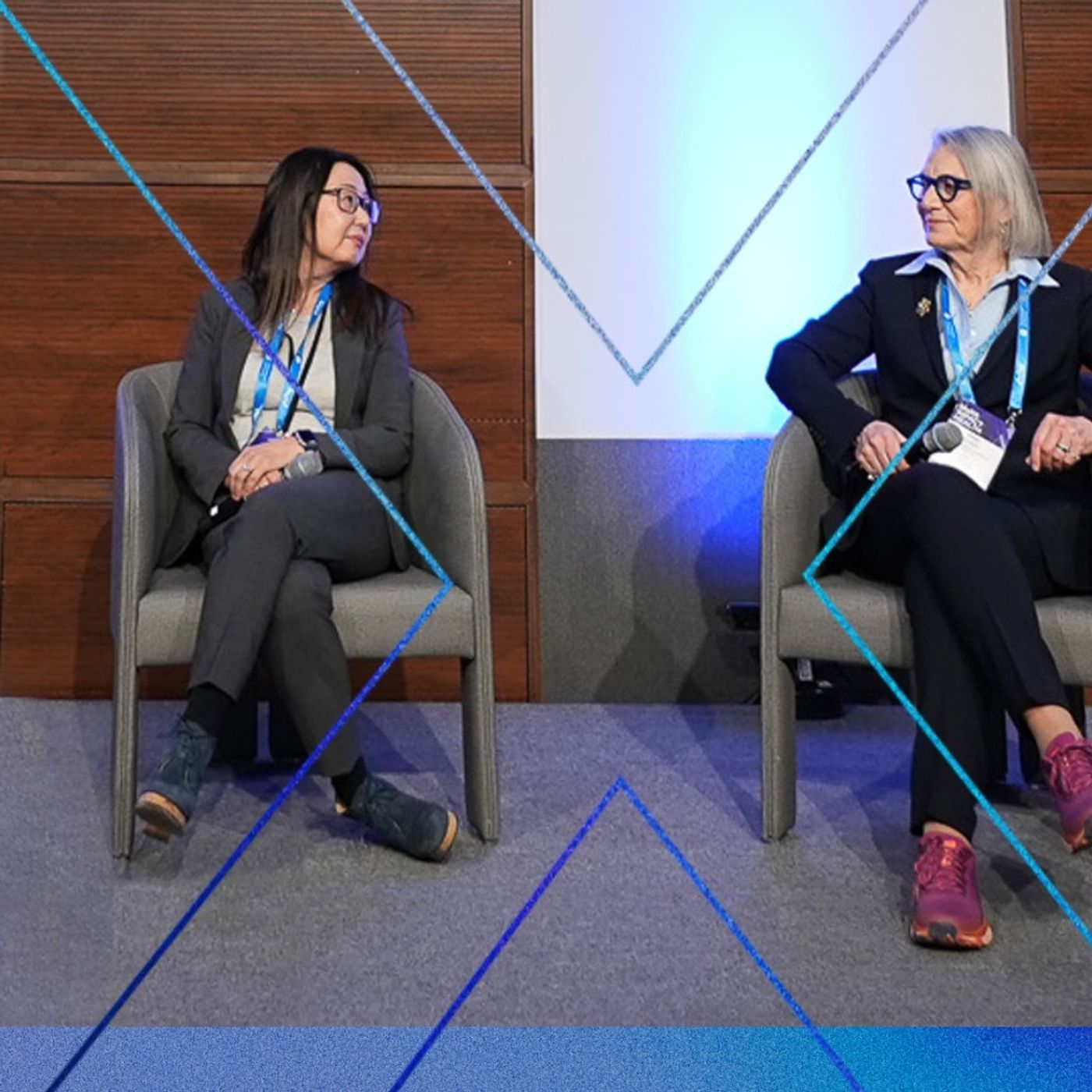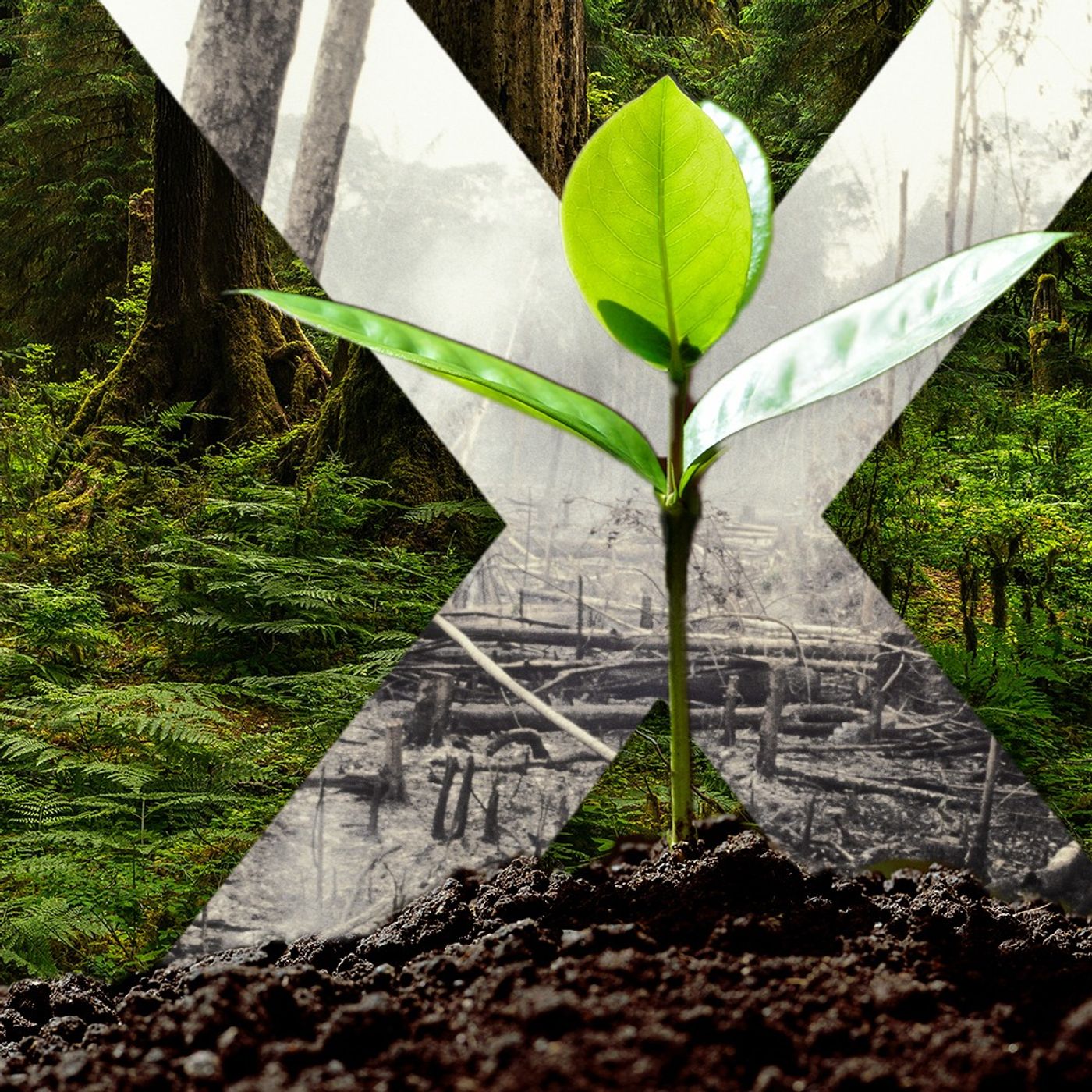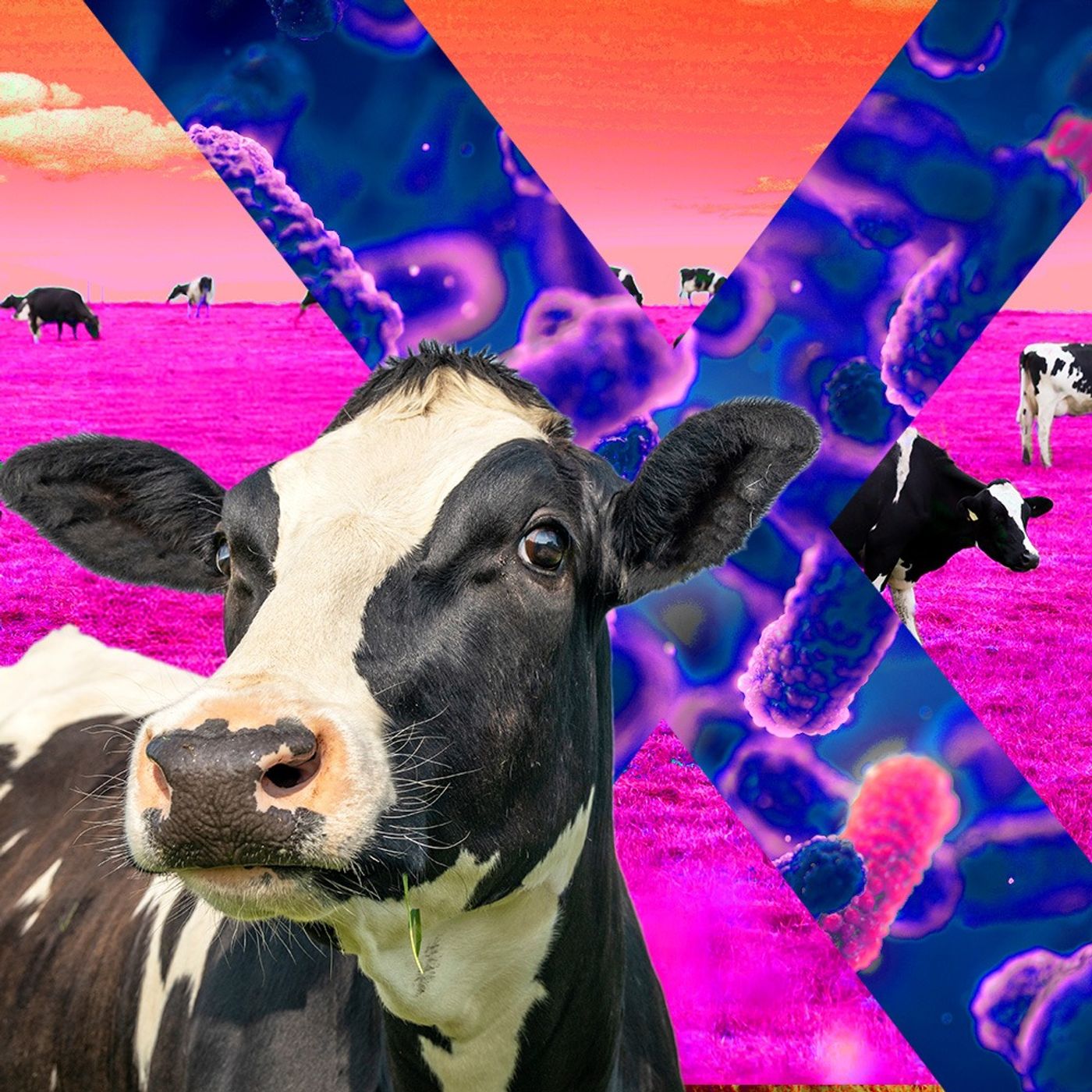Solve for X: Innovations to Change the World
Solve for X uncovers what’s next. Join journalist Manjula Selvarajah as she dives into the latest tech innovations shaping our world. How are satellites revolutionizing the fight against climate change? Could music be the medicine we need? What will it take for Canada to lead the global tech scene and achieve a zero-emission future? Discover the answers to these questions and more in the next season of Solve for X.
It’s different all over: Embracing the complexity of human biology

By uncovering critical sex-based differences related to brain and metabolic health, researchers Gillian Einstein and Minna Woo are making the case that tailored interventions are key to improving health outcomes for women — and everyone else. Through their work exploring how conditions from Alzheimer’s to kidney disease can have varied effects depending on a patient’s sex, they underscore what the medical community as a whole can learn from experts in women’s health: Things aren’t as simple as we want to believe. In this bonus episode, recorded live on May 8, 2025, at the MaRS Impact Health Conference, Einstein and Woo di...
Cold comfort: How to keep cool without destroying the planet

The hotter it gets outside, the more we use air conditioning, and the more we use air conditioning, the hotter it gets. AC units and refrigeration combined adds up to 10 percent of global greenhouse gas emissions. But how can we solve this cooling paradox? Building on last episode’s conversation with the UN’s global chief heat officer, host Manjula Selvarajah meets the experts harnessing novel innovations to keep cities and people cool — from massive infrastructure projects using ice-cold lake water to microscopic solutions to get rid of that sticky, sweltering humidity.
David MacMillan is a manager in the...
Heat warning: Are we ready for a hotter climate?

Extreme heat waves are anything but normal, but they’re quickly becoming the new reality. The 10 hottest years on record have all happened in the last decade. And because temperatures in urban centres can be 10 to 15 degrees Celsius higher than surrounding areas, cities can be dangerous places to be when the mercury rises — particularly for the elderly, those with pre-exisiting health conditions as well as poorer populations who lack access to air conditioning. “Heat has a way of going through the city and finding those who are the weakest,” says Eleni Myrivili, the United Nations’ global heat officer. “It’s a very unfai...
Regrowth strategy: To adapt to a changing climate, restoring nature is critical. But do we have the seeds we need?

A quarter of Canada’s trees are at risk, and upwards of a million species around the world face extinction in the decades to come. Restoring nature is essential to survival — it can make communities more resilient to climate change, it can regrow areas destroyed by increasingly intense wildfires and it can help reduce atmospheric carbon. But repairing ecosystems is not as simple as planting seeds. In this special episode, experts weigh in on restoration efforts, the global seed storage and why there’s such a thing as planting too many trees.
Featured in this episode:
Martin...
Compounding the cure: How our overzealous efforts to zap infections could be making animals — and humans — sicker

Experts are calling antimicrobial resistance the silent pandemic: Each year, AMR is responsible for more than a million deaths around the world. It’s a threat to our health that’s been exacerbated by the very medications used to treat it. This problem has been growing for decades, and healthcare practitioners have responded by developing new antibiotics. “And then,” says Dr. Scott Weese, a global expert in antimicrobial resistance, “we started running out of antibiotics.” To address the rise of drug-resistant pathogens, we need to examine how we use these medications to treat disease in both humans and animals, says Weese...
Waste opportunity: Can we design plastic out of healthcare?

Modern medicine has a dirty secret. While plastics have revolutionized healthcare, research increasingly shows that they’re also making us sick. Items such as PPE, syringes, gowns, IV bags and protective wrappings have allowed for a higher standard of sanitary patient care that vastly reduces the risk of cross-contamination. But all that plastic is adding up. Nearly a third of healthcare waste is plastics, and a report on 110 Canadian hospitals revealed the combined waste adds up to 87,000 tons of waste each year. These items break down into microplastics, which accumulate in our bodies and contribute to neurodegenerative, reproductive and ov...
Fire alarm: Rethinking innovation in an increasingly volatile world

The wildfire that devastated Fort McMurray in 2016 burned more than 579,000 hectares of land, drove 88,000 people from their homes and caused nearly $10 billion in damages. It’s often seen as an outlier, a freak natural disaster. But extreme wildfires, like those that tore through Los Angeles earlier this year, are becoming more intense and harder to control. “We all saw the smoke, and too many of us have seen the fire,” says John Vaillant, author of Fire Weather: The Making of a Beast. “Weather is different now, and fire is different now.” Hotter, drier weather is turning our forests into kindling...
Cracking the code: How generative biology could transform medicine

Can AI unravel the mysteries of human biology? Could it help design specialty treatments and cures for disease? Geoffrey von Maltzahn and his team at Generate:Biomedicines are bullish on both counts. AI has greatly accelerated progress in genome engineering, bioengineering and nanotechnology and they are getting closer to developing tailored therapeutics. “Six years ago, this was a crazy idea,” he says. “We’re now convinced that 100 percent of protein therapeutics are going to get created this way.” In this special episode of Solve for X, host Manula Selvarajah sits down with von Maltzahn to talk about where the science is...
Innovation hotline: Answering the tech sector’s burning questions

For many in Canada’s tech sector, 2024 was a challenging year. At times, it seemed as if the only constant — whether it was the economy, geopolitical relations or health of the planet — was uncertainty. To take stock of the past year and look ahead to 2025, we reached out to members in the innovation community to hear what’s on their minds. Can tech help fix Canada’s productivity crisis? What will it take to foster real change? In the first call-in episode of the MaRS podcast, Solve for X, MaRS CEO Alison Nankivell answers their questions and shares her perspectiv...
Soak it up: Can sponge cities save us from flooding?

As the effects of climate change trigger record-breaking rainfall and flooding, cities from Montreal to Mumbai are re-thinking how urban design can keep inhabitants safe from natural disasters. Kongjian Yu, a landscape architect based in Beijing, has a counterintuitive idea. Instead of fighting water by building more dams, sewers and pipes, he proposes we let it in, designing nature-based infrastructure that can absorb run-off. His principles have been adopted by the Chinese government and implemented in hundreds of municipalities. Could this nature-based approach help us adapt to a changing climate?
Featured in this episode:
Kongjian Yu...
Striking a chord: Why neuroscientists believe music could hold the power to cure what ails us

Music makes us feel better — for most of us, this is an intuitive truth. But scientists are only now beginning to understand the remarkable ways that music affects our brains. With the help of innovation, researchers are working to assess and codify the whats, whys and hows that could help us harness this power as a therapeutic tool to treat people grappling with everything from mood disorders to Parkinson’s disease. Their data is helping prove that music could be one of our most vital, valuable and accessible forms of medicine.
Featured in this episode:
Dan L...
Solve for X S3 Trailer
In season 3 of Solve for X, we meet the innovators and entrepreneurs solving for climate change, economic disparity, diseases and more. Subscribe and listen beginning September 26.
Solve for X is brought to you by MaRS, North America’s largest urban innovation hub and a registered charity. MaRS supports startups and accelerates the adoption of high-impact solutions to some of the world’s biggest challenges. For more information, visit marsdd.com.
The methane hunter: Meet the man who is tracking down emissions — from space

With more than 80 times the short-term warming power of carbon dioxide, methane is a significant climate threat. But finding and fixing methane leaks is no small feat and ground-based detection methods struggle to pinpoint this colourless, odourless gas. In this episode of Solve for X, host Manjula Selvarajah sits down with Stéphane Germain to discuss how his company’s fleet of microsatellites is transforming methane detection. By capturing data from orbit, this satellite technology offers new insights into methane sources, reshaping how we monitor and reduce emissions for a cleaner future.
Featured in this episode:
Sté...Beast mode: Can technology help protect some of the world’s most endangered animals?

We’re facing a global ecosystem crisis. Within the last 50 years alone, wildlife populations across the world have declined by a shocking 69 percent. But technology, with help from citizen science, is emerging as one of wildlife’s greatest allies. In this episode of Solve for X, we explore how remote sensing, robot boats and DNA analysis could revolutionize wildlife preservation, offering hope for everything from insects to whales.
Featured in this episode:
James Snider is the vice president of science, knowledge and innovation at World Wildlife Fund Canada. Elizabeth Clare is an associate professor of biology at York...Changing tastes: Can technology sustainably feed the world?

Climate change is putting many of the foods we love at risk. Add in rapid population growth — the planet will be home to 9.7 billion people by 2050 — and it’s clear we need to reimagine how we feed ourselves. As food security expert Leonore Newman says, “we are running short on planet.” But is society ready for replacement proteins and lab-grown meats? Whether it’s cell-grown salmon or chili lime crickets, the plate of the future is going to look a little bit different. In this episode of Solve for X, we discuss the revolution in what we eat — and why it’s as mu...
Decade of decisions: How better infrastructure can transform our world

From Wi-Fi to power stations, roads to pipelines, our infrastructure is stressed. Built for a climate that no longer exists, our systems are failing at an increasing pace. But to fix what’s broken goes beyond structural repair — we also need to address the inequities baked into our infrastructural systems and injustices from past developments. Amid these challenges, we have the chance to reimagine the future of infrastructure for a better world. On this episode of Solve for X, we sit down with Deb Chachra, author of the new book How Infrastructure Works: Inside the Systems That Shape Our Worl...
The electric afterlife: What are we going to do with all those EV batteries?

The future of the automobile is electric. Yet the surge in electric vehicles raises critical concerns regarding battery creation, disposal and recycling. What will happen once all those cars reach the end of the road? In this episode of Solve for X, we address the environmental footprint of EV batteries, confront the challenges posed by the existing regulatory landscape and highlight opportunities for second-life applications. It turns out that batteries are capable of more than you might expect, and can teach us a lot about how to design for the future.
Featured in this episode:
Andy...Drain brain: Meet the man who is fixing our wastewater problem

Wastewater, the world’s dirty (not so little) secret, consumes nearly 3 percent of the global electricity demand. It’s a staggering statistic, and yet much of what actually happens with wastewater remains a mystery. Treatment plants typically purify water by infusing it with oxygen, creating an environment where bacteria can break down waste. But without proper sensors or data, the method is incredibly energy-intensive. Plus with an influx of unregulated chemicals, our waste streams are becoming more toxic and harder to clean. In this episode of Solve for X, environmental microbiologist Patrick Kiely shares his unusual solution that harnesses the...
Going viral: Can AI predict the next pandemic?

The next pandemic — it’s a question of when not if. Climate change is shifting the patterns of how and where diseases spread, and our insatiable love of travel means that viruses are now showing up in places they’ve never been before. Forecasting future outbreaks is becoming increasingly complex. But as infectious disease specialist Kamran Khan explains, this is where AI can help. Machine learning algorithms can detect patterns in data, model risk and project outcomes — and unlike humans they can work 24 hours a day. In this episode of Solve for X, host Manjula Selvarajah sits down with Khan to...
Sea change: Can we alter the chemistry of the ocean to save the climate?

Scientists are finding that ocean alkalinity enhancement is one of the more promising solutions for permanently storing carbon from the atmosphere. And not only could this emerging technology help with the climate crisis, it could also address another key problem: acidity in the ocean, which is endangering ecosystems. In this premiere episode of the second season of Solve for X: Innovations to Change the World, host Manjula Selvarajah explores how this technology could help and what still needs to be figured out.
Featured in this episode:
Claudia Benitez-Nelson is an oceanographer who teaches at the University...Solve for X S2 Trailer
Solve for X is your window on the future. Each episode, journalist Manjula Selvarajah goes behind the hype and headlines to make sense of how new technologies are reshaping our world. Can we predict the next pandemic? What if we geoengineer the oceans to stop climate change? Could robots help preserve wildlife? Find answers to these questions and more in the new series of Solve for X.
Solve for X is brought to you by MaRS. All episodes were produced by Ellen Payne Smith. Gab Harpelle is our mix engineer, Lara Torvi and Heather O’Brien are th...
Follow the money
Jessica F. Green was among 400 Canadian climate scientists who called for the government to scrap a proposed tax credit for carbon capture last year, claiming it would underwrite the oil and gas industry. Yet policy is a key component to a successful transition away from fossil fuels — and we need regulation. In this special episode of Solve for X, the University of Toronto political scientist and environment professor sits down with host Manjula Selvarajah to discuss her research into climate policy and the impact of carbon pricing.
Featured in this episode:
Jessica F. Green is a pro...The race to discover new materials
What will it take to get to a world where we have all the energy we need — without the emissions, smog and other climate impacts? The shift requires a rapid draw-down on carbon-based fuels and the use of energy storage technologies. And while lithium batteries have been instrumental in the transition, supply chain and sustainability issues are of increasing concern. We need to think beyond the battery. In this episode, we’re looking into how new materials might get us one step closer in the on-going transition to a clean energy future. From using AI to speed up discovery to de...
Confronting waste: Getting to a circular economy
Humans generate an incredible amount of trash. In Canada alone, 35 million tonnes of food is wasted every year. That’s a lot of energy spent growing, processing, packaging and delivering food that ultimately goes uneaten — and all that waste creates a lot of greenhouse gases. To fix the climate, we have to redefine our relationship with waste; that means doing more with what we already produce. In this episode, we head up into space to see how astronauts deal with their waste, travel to a facility to learn how food scraps are being transformed into biogas and explore how the...
Can AI help build a more liveable city?
As we start to feel the effects of climate change, it’s clear we need to find ways to adapt our communities and lighten the impact on the planet. It can be tempting to just start over somewhere fresh — to build a fully optimized city that’s decked out with the latest technology to be sustainable and efficient. But as we’ve seen in one smart city development after another, these projects often fail to live up to the hype. It might be time to rethink what a smart solution actually looks like. In this episode, we learn about two compa...
The grid: Is it time to rethink our power systems?
Our energy grid is something most of us only think about when it isn’t working. But growing demand for electricity is placing an even greater strain on a system that’s already facing increased pressure from extreme weather events. Can we build a more sustainable and dependable grid? In this episode, we explore how when it comes to climate change, the challenge of greening the grid is as much an issue of complex engineering as it is about policy and equity.
Featured in this episode:
Josh Wong is the CEO of Opus One Solutions, a compa...Solve for X Mid-season Trailer
This week we’re on pause, returning September 15th to our regular schedule. Exciting things are in the works: in coming episodes I’ll be talking to a scientist behind a robot lab and exploring how we can extract value from waste — even in space. But we also want to hear from you: what climate solutions are you interested in? Is there a certain technology that needs decoding? Send us a note at media@marsdd.com — and don’t forget to turn on alerts for our upcoming episodes! Catch you soon.
The Mission from MaRS initiative...
How to speed up cleantech development
To take new climate solutions from the lab out into the world can take hundreds of millions of dollars in investment. But as the pressure intensifies to hit our climate targets, the rapid commercialization of clean technologies is critical. On this special bonus episode, guest host Lara Torvi sits down with cleantech investor Susan Rohac to discuss the opportunities and challenges Canada faces to commercialize climate technologies at full scale.
Featured in this episode:
As the vice president of the Cleantech Practice at BDC (the Business Development Bank of Canada), Susan Rohac sees the po...Sparking change: Designing a cleaner energy future
Humans are wired to want more. More time, more resources, more money. But what if we could do more with what we already have? When we innovate for resilience, we often think big — bypassing solutions in our own homes. Today, we’re looking at the design of objects (like electric cars and heat pumps) and discovering their purpose can go far beyond the original intent. As we move to more sustainable forms of power, energy storage is becoming increasingly important. Here, we explore novel ways we can address energy intermittency in the future and also look back in history for...
Fighting greenwashing: A conversation with Catherine McKenna
Net-zero commitments are a critical first step in the fight against climate change. But to stave off the worst effects of a warming planet, we actually have to ensure countries and corporations live up to those promises. In this episode, we chat with Catherine McKenna, head of the UN Task Force against greenwashing, about regulations and accountability when it comes to net-zero targets, as well as how incentives might help. We need to quickly scale climate solutions; which means tackling bureaucratic hurdles. Nothing is off limits.
Featured in this episode:
Catherine McKenna, Canada’s form...We need to save the trees — but how?
Trees have an incredible ability to absorb carbon — which means protecting, planting and restoring forests are a (relatively) easy way to address global warming. Climate change, however, is making it more complicated. Our forests are (quite literally) going up in smoke, which has far worse consequences than one might expect. In this episode, we explore the role forests play in carbon sequestration, how increasingly intense fires are threatening to turn them into a carbon bomb, and how technology (think drones, satellites and lasers) can assist in our replanting and conservation efforts. The forests have helped us, it’s time to h...
We need to talk about our carbon problem
In the last 250 years, we’ve released more carbon dioxide into the atmosphere than in the previous 20,000 years. To make serious headway in meeting climate-change deadlines, experts are looking at technologies that go beyond simply curbing emissions to those that can also take carbon dioxide out of the air. In this premiere episode of Solve for X, tech journalist Manjula Selvarajah explores what we can do with all this carbon dioxide from burying it underground to turning it into vodka.
Featured in this episode:
Roger Highfield, science director at the Science Museum in London, Engla...Solve for X Trailer
It’s now or never. Canada is warming at double the rate of other countries, and we have one of the highest GHG emissions footprints per capita in the world. The good news is much of the technology needed to solve the climate crisis already exists. A special new podcast series, Solve for X delves into these Canadian ideas and innovations that could help prevent the most disastrous consequences of climate change and build a cleaner future. From A.I. to advanced materials to energy optimization, tech journalist Manjula Servarajah digs into the big questions and explores some of th...
